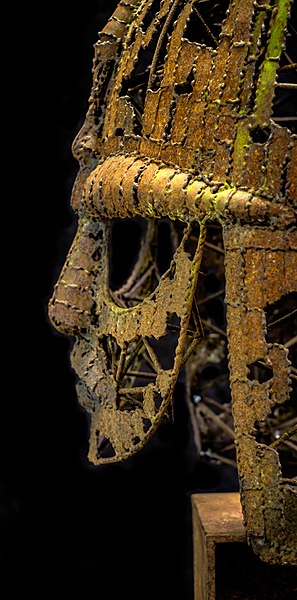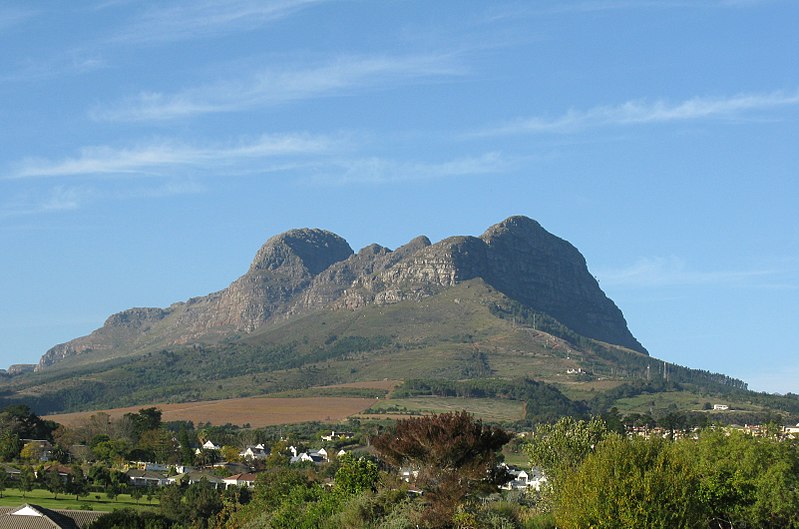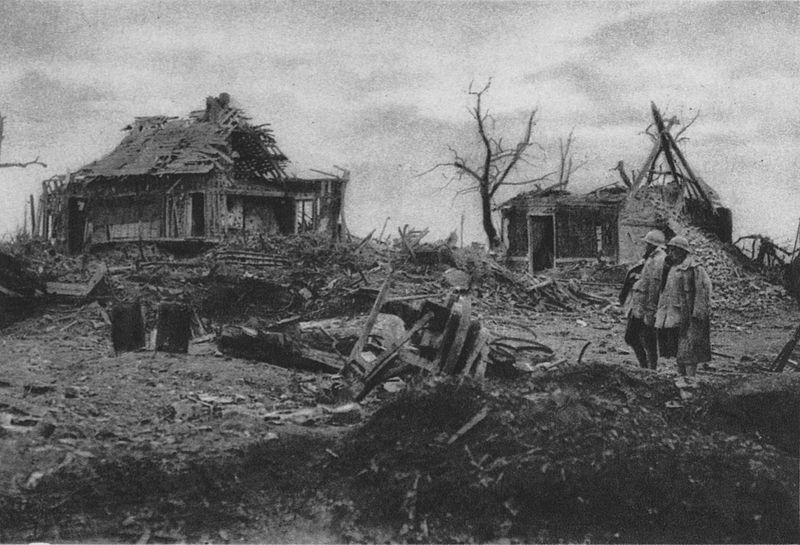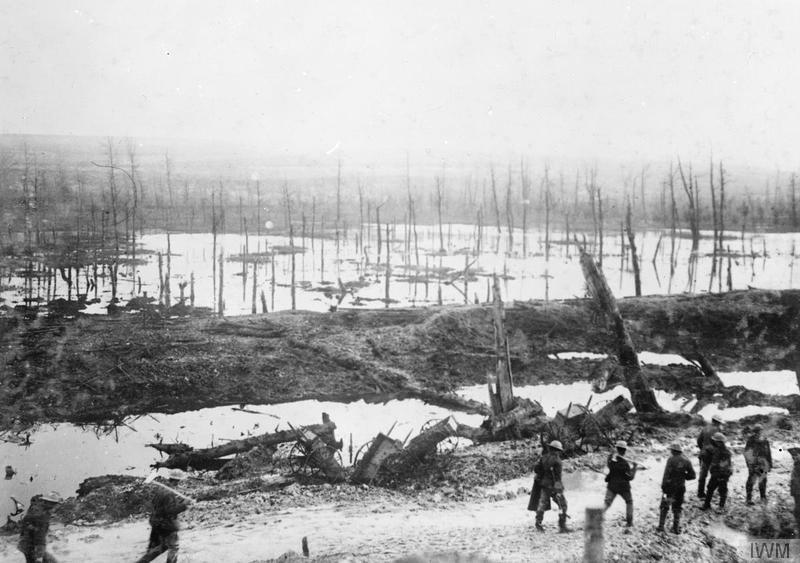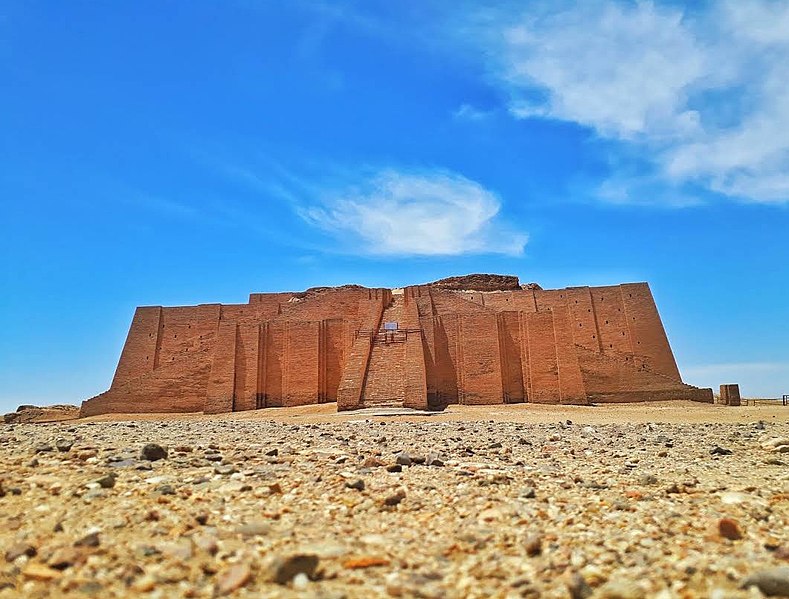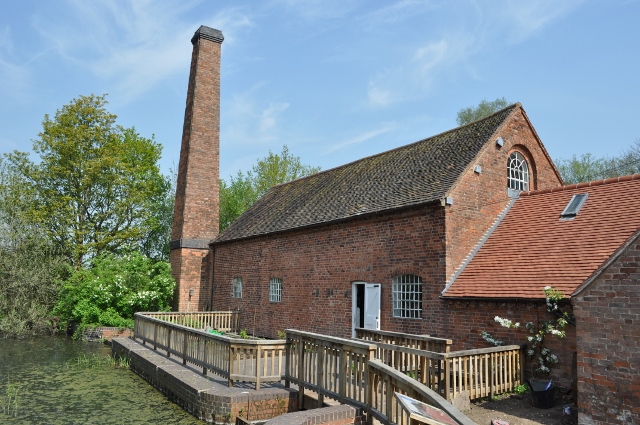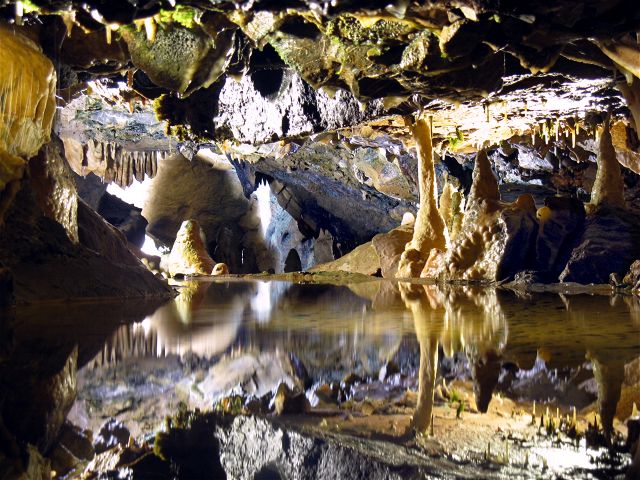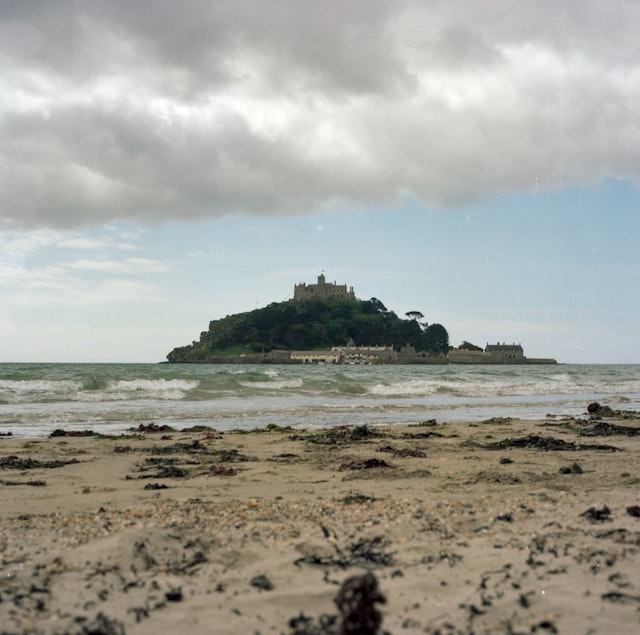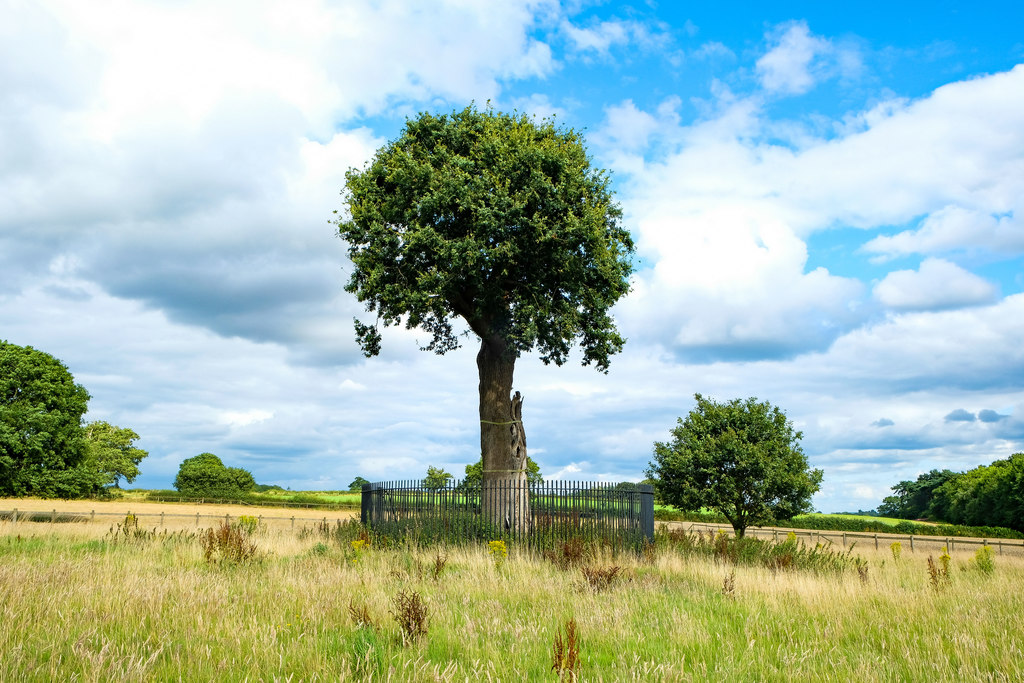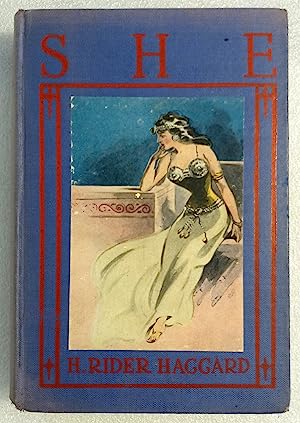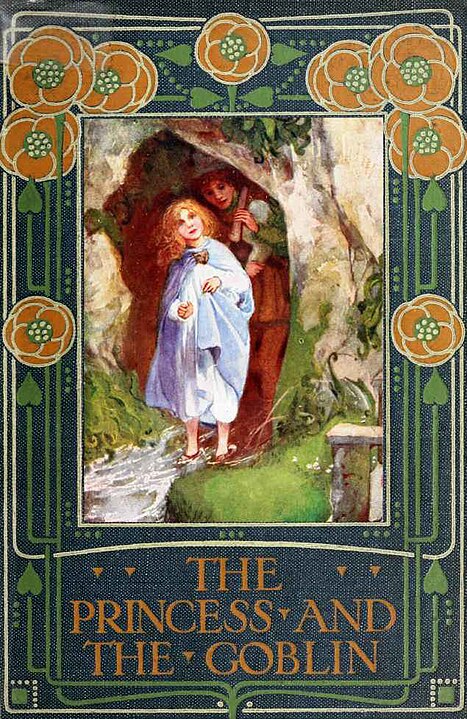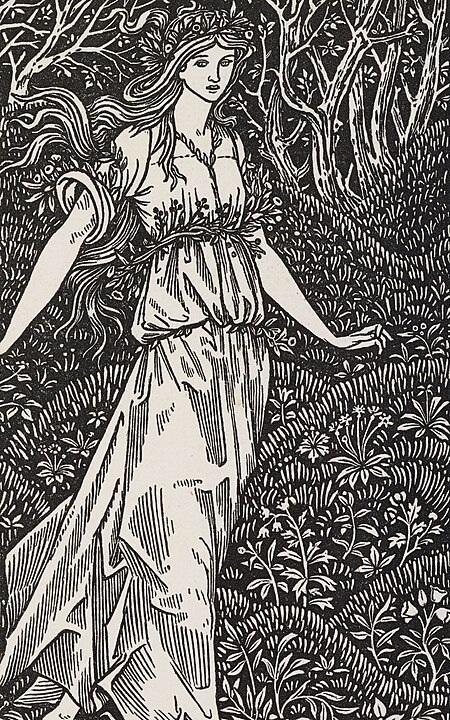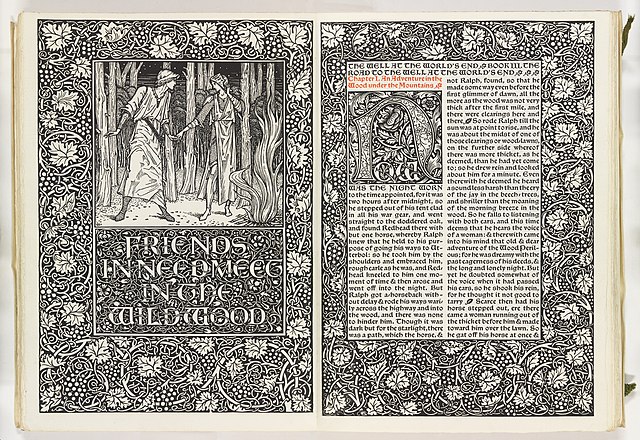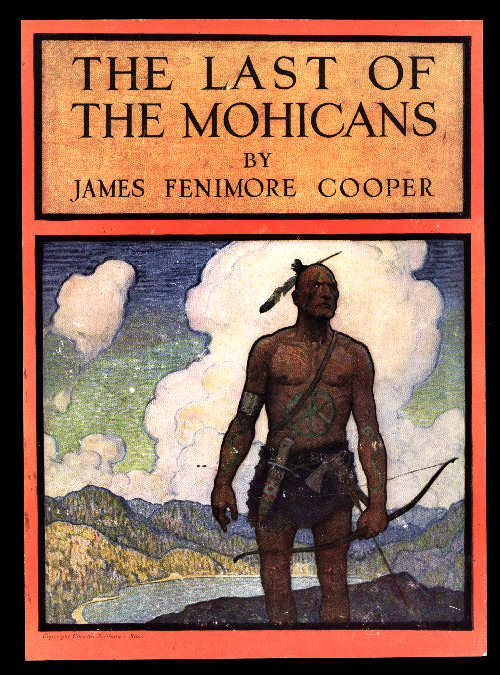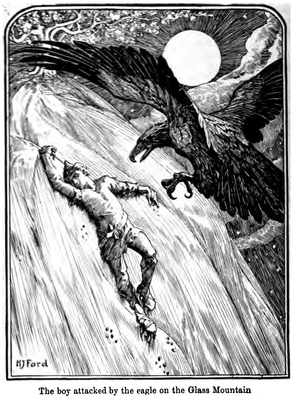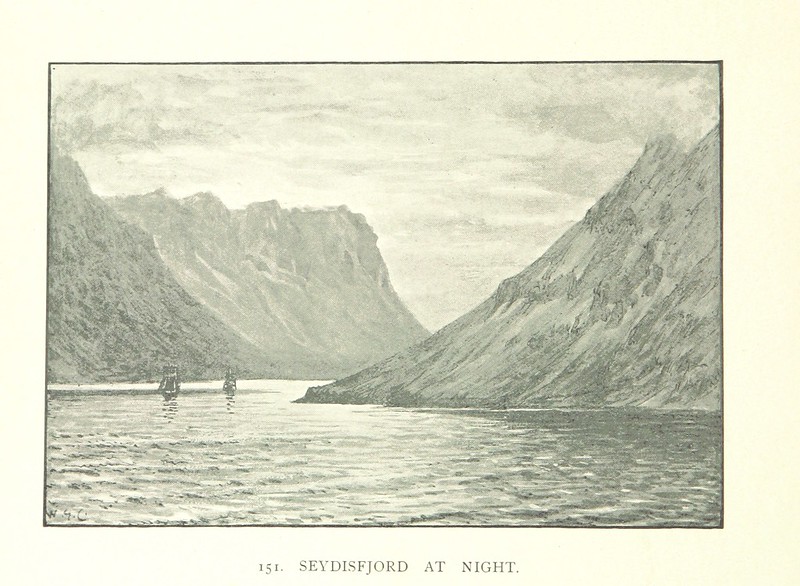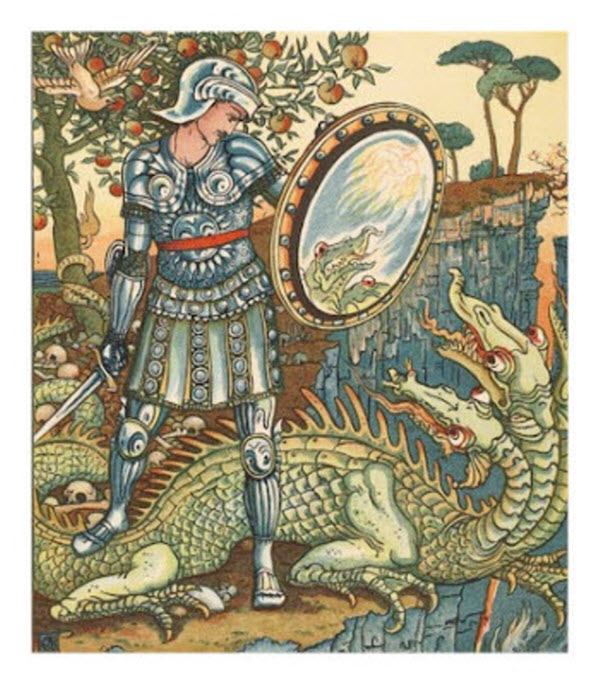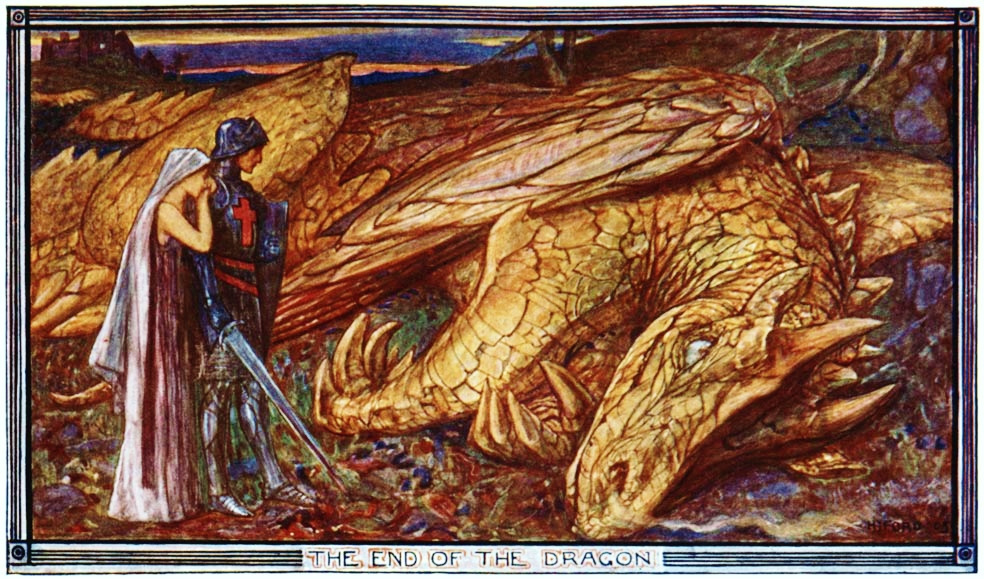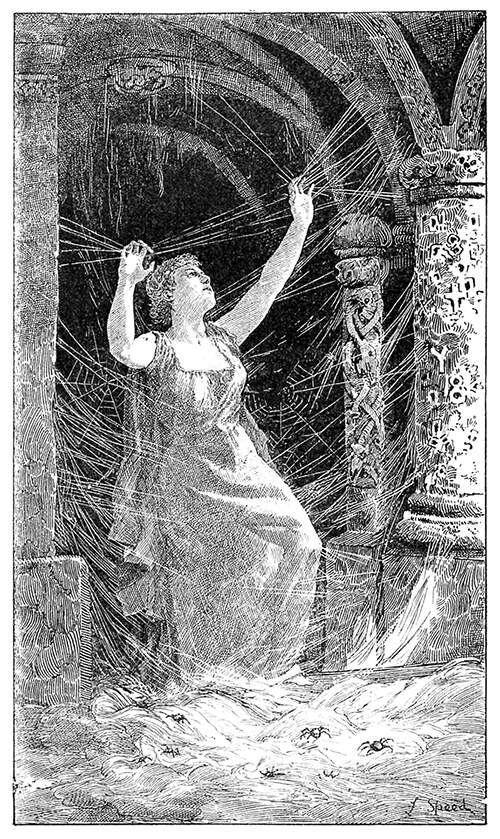Mereth Aderthad Interview: Interview with cloudyhymns by Shadow
Dragons are one of the most familiar creatures in Tolkien's world and one of the least understood. In this interview, Shadow spoke with cloudyhymns about his Mereth Aderthad presentation "The Design of Dragons and the Doom of the Dwarves," the nature of dragons and their connections with Dwarves, and the musicality of Tolkien's works.
Dip the Ladle

But if we speak of a Cauldron, we must not wholly forget the Cooks. There are many things in the Cauldron, but the Cooks do not dip in the ladle quite blindly. Their selection is important. The gods are after all gods, and it is a matter of some moment what stories are told of them. … Small wonder that spell means both a story told, and a formula of power over living men.
~ Tolkien, On Fairy-stories
Tolkien is often credited with establishing the modern fantasy genre as it is known today. Certainly, his work has inspired authors, artists, filmmakers, and other creatives for decades. However, as his 1938 lecture On Fairy-stories attests, he saw his own work as a "cauldron of story," drawing with skill from centuries of myth, legend, and tales to come before him.
This month's challenge considers Tolkien's many inspirations, from the books and poems he read, to the illustrations they contained, to the places important in his life. If you wish to participate this month, you will be assigned a prompt by a moderator that you can use to create a fanwork. As always, you can interpret your prompt however you want and use any part or parts you want—we encourage creative uses of our prompts! If a prompt doesn't speak to you, let one of our moderators know, and we'll dip the ladle again. To receive a prompt, comment on our Dreamwidth, send us an ask on Tumblr, post in the #monthly-challenges channel on our Discord, or message us through the SWG site. If you have a preference for the type of prompt we send you, please specify if you would like an image of a location, an image of a book cover/illustration, or a quote.
Many thanks to Oxbridge for this month's stamps!
This challenge opened in .
Prompts
Choose your prompt from the collection below.
- View Prompts
-
Places
Click to view at full size.
Sutton Hoo helmet
Helderberg Mountain
Maurepas, Somme
Battle of the Somme
Ziggurat at Ur
Sarehole Mill (photo by Ashley Dace)
Mt. Erebus
Cheddar Gorge, Gough's Cave (photo by Nigel Davies)
St. Michael's Mount, Cornwall
Royal Oak of Boscobel (photo by Jeff Buck)
Book Covers and Illustrations
Click to view at full size.
Cover of H. Rider Haggard's She, early 1900s edition
Cover of George MacDonald's The Princess and the Goblin, 1911 edition
Frontispiece for William Morris's The Wood Beyond the World, 1894
Double-page spread for William Morris's The Well at the World's End, 1896
Cover of James Fenimore Cooper's The Last of the Mohicans
Illustration from the Yellow Fairy Book, “The boy attacked by the eagle on the Glass Mountain” by H.J. Ford, 1894
Illustration by William Gershom Collingwood from "A Pilgrimage to the Saga-Steads of Iceland"
Illustration by Walter Crane from Princess Belle-Etoile, 1884
Illustration by Henry Justice Ford from The Red Romance Book, 1905
Illustration by Lancelot Speed from The Red Fairy Book, 1890
Quotes
Be bloody, bold, and resolute; laugh to scorn
The power of man, for none of woman born
Shall harm Macbeth.
~ Macbeth, Act IV, Scene 1
Be lion-mettled, proud; and take no care
Who chafes, who frets, or where conspirers are:
Macbeth shall never vanquish'd be until
Great Birnam wood to high Dunsinane hill
Shall come against him.
~ Macbeth, Act IV, Scene 1
I will not be afraid of death and bane,
Till Birnam forest come to Dunsinane
~ Macbeth, Act V, Scene 3
What's the boy Malcolm?
Was he not born of woman? The spirits that know
All mortal consequences have pronounced me thus:
'Fear not, Macbeth; no man that's born of woman
Shall e'er have power upon thee.'
~ Macbeth, Act V, Scene 3
You may believe by this branch that I am bearing here
that I pass as one in peace, no peril seeking.
For had I set forth to fight in fashion of war,
I have a hauberk at home, and a helm also,
a shield, and a sharp spear shining brightly,
and other weapons to wield too, as well I believe;
but since I crave for no combat, my clothes are softer.
~ Sir Gawain and the Green Knight (Tolkien's translation, 12)
I am the weakest, I am aware, and in wit feeblest,
and the least loss, if I live not, if one would learn the truth.
~ Sir Gawain and the Green Knight (Tolkien's translation, 16)
… all things ripen and rot that rose up at first,
and so the year runs away in yesterdays many,
and here winter wends again …
~ Sir Gawain and the Green Knight (Tolkien's translation, 23)
By a mount in the morning merrily he was riding
into a forest that was deep and fearsomely wild,
with high hills at each hand, and hoar woods beneath
of huge aged oaks by the hundred together;
the hazel and the hawthorn were huddled and tangled
with rough ragged moss around them trailing,
with many birds bleakly on the bare twigs sitting
that piteously piped there for pain of the cold.
~ Sir Gawain and the Green Knight (Tolkien's translation, 32)
"One thing more," said the master, "we'll make an agreement:
whatever I win in the wood at once shall be yours,
and whatever gain you may get you shall give in exchange."
~ Sir Gawain and the Green Knight (Tolkien's translation, 45)
Thus she tested and tried him, tempting him often,
so as to allure him to love-making, whatever lay in her heart.
~ Sir Gawain and the Green Knight (Tolkien's translation, 61)
It was torment to tell the truth:
in his face the blood did flame;
he groaned for grief and ruth
when he showed it, to his shame.
~ Sir Gawain and the Green Knight (Tolkien's translation, 100)
"He castles showed me there and towers,
water and wild, and woods, and flowers,
and pastures rich upon the plain;
and then he brought me home again,
and to our orchard he me led,
and then at parting this he said:
'See, lady, tomorrow thou must be
right here beneath this grafted tree,
and then beside us thou shalt ride,
and with us evermore abide.'"
~ Sir Orfeo (Tolkien's translation, 159-69)
… by magic was she from them caught,
and none knew whither she was brought.
~ Sir Orfeo (Tolkien's translation, 194-95)
Now all his kingdom he forsook.
Only a beggar's cloak he took;
he had no kirtle and no hood,
no shirt, nor other raiment good.
His harp yet bore he even so,
and barefoot from the gate did go;
no man might keep him on his way.
~ Sir Orfeo (Tolkien's translation, 227-33)
There often by him would he see,
when noon was hot on leaf and tree,
the king of Faërie with his rout
came hunting in th woods about
with blowering far and drying dim,
and barking hounds that were with him;
yet never a beast they took nor slew,
and where they went he never knew.
~ Sir Orfeo (Tolkien's translation, 281-88)
And all that land was ever light,
for when it came to dusk of night
from precious stones there issued soon
a light as bright as sun at noon.
~ Sir Orfeo (Tolkien's translation, 369-72)
The king replied: "What man art thou
that hither darest venture now?
Not I nor any here with me
have ever sent to summon thee,
and since here first my reign began
I have never found so rash a man
that he to su would dare to wend,
Unless I first for him should send."
~ Sir Orfeo (Tolkien's translation, 421-28)
Heith they named her who sought their home,
The wide-seeing witch, in magic wise;
Minds she bewitched that were moved by her magic,
To evil women a joy she was.
~ Poetic Edda, "Völuspá," 22 (translated by Henry Adams Bellows)
Brothers shall fight and fell each other,
And sisters' sons shall kinship stain;
Hard is it on earth, with mighty whoredom;
Axe-time, sword-time, shields are sundered,
Wind-time, wolf-time, ere the world falls;
Nor ever shall men each other spare.
~ Poetic Edda, "Völuspá," 45 (translated by Henry Adams Bellows)
How fare the gods? how fare the elves?
All Jotunheim groans, the gods are at council;
Loud roar the dwarfs by the doors of stone,
The masters of the rocks: would you know yet more?
~ Poetic Edda, "Völuspá," 48 (translated by Henry Adams Bellows)
Now do I see the earth anew
Rise all green from the waves again;
The cataracts fall, and the eagle flies,
And fish he catches beneath the cliffs.
The gods in Ithavoll meet together,
Of the terrible girdler of earth they talk,
And the mighty past they call to mind,
And the ancient runes of the Ruler of Gods.
In wondrous beauty once again
Shall the golden tables stand mid the grass,
Which the gods had owned in the days of old …
~ Poetic Edda, "Voluspo," 59-61 (translated by Henry Adams Bellows)
The lame rides a horse, the handless is herdsman,
The deaf in battle is bold;
The blind man is better than one that is burned,
No good can come of a corpse.
~ Poetic Edda, "Hovamol," 71 (translated by Henry Adams Bellows)
"To me more dear than in days of old
Was ever maiden to man;
But no one of gods or elves will grant
That we both together should be."
~ Poetic Edda, "Skirnismol," 7 (translated by Henry Adams Bellows)
Words shall not be hid
nor spells buried
might shall not sink underground
though the mighty go.
~ The Kalevala (Elias Lönnrot)
For this I weep all my days
and throughout my lifetime grieve
that I swam from my own lands
and came from familiar lands
towards these strange doors
to these foreign gates.
~ The Kalevala (Elias Lönnrot)
And where'er his head was turning,
There he found a mouth for kissing,
Wheresoe'er his hand was outstretched,
There he found a hand to clasp it.
~ The Kalevala (Elias Lönnrot)
Thus the wise and worthy singer
Sings not all his garnered wisdom;
Better leave unsung some sayings
Than to sing them out of season.
~ The Kalevala (Elias Lönnrot)
Now was the heart of the coiling beast stirred to come out to fight. His sword had already the good king drawn for battle, his ancient heirloom, quick of edge. Each with fell purpose in their hearts knew dread of the other; but undaunted stood the prince of vassals with his tall shield against him, while the serpent swiftly coiled itself together.
~ Beowulf, Tolkien’s translation
The hoard-guardian [dragon] scorched the ground as he scoured and hunted for the trespasser who had troubled his sleep. Hot and savage, he kept circling and circling the outside of the mound. No man appeared in that desert waste, but he worked himself up by imagining battle; then back in he’d go in search of the cup, only to discover signs that someone had stumbled upon the golden treasures.
~ Beowulf, Heaney translation
Then came troublesome doubts. Why had the Morlocks taken my Time Machine? For I felt sure it was they who had taken it. Why, too, if the Eloi were masters, could they not restore the machine to me? And why were they so terribly afraid of the dark? I proceeded, as I have said, to question Weena about this Underworld, but here again I was disappointed. At first she would not understand my questions, and presently she refused to answer them. She shivered as though the topic was unendurable.
~ H.G. Wells, The Time Machine
Necessarily my memory is vague. Great shapes like big machines rose out of the dimness, and cast grotesque black shadows, in which dim spectral Morlocks sheltered from the glare. The place, by the bye, was very stuffy and oppressive, and the faint halitus of freshly-shed blood was in the air. Some way down the central vista was a little table of white metal, laid with what seemed a meal. The Morlocks at any rate were carnivorous! Even at the time, I remember wondering what large animal could have survived to furnish the red joint I saw. It was all very indistinct: the heavy smell, the big unmeaning shapes, the obscene figures lurking in the shadows, and only waiting for the darkness to come at me again! Then the match burnt down, and stung my fingers, and fell, a wriggling red spot in the blackness.
~ H.G. Wells, The Time Machine
When I had started with the Time Machine, I had started with the absurd assumption that the men of the Future would certainly be infinitely ahead of ourselves in all their appliances.
~ H.G. Wells, The Time Machine
At the end of forty days, when all their provisions were spent, there appeared towards the north, an island very rocky and steep. When they drew near it, they saw its cliffs upright like a wall, and many streams of water rushing down into the sea from the summit of the island; but they could not discover a landing-place for the boat. Being sorely distressed with hunger and thirst, the brethren got some vessels in which to catch the water as it fell; but St Brendan cautioned them: "Brothers! do not a foolish thing …"
~ St. Brendan's Navigatio
When they had disembarked, they saw a land, extensive and thickly set with trees, laden with fruits, as in the autumn season. All the time they were traversing that land, during their stay in it, no night was there, but a light always shone, like the light of the sun in the meridian, and for the forty days they viewed the land in various directions, they could not find the limits thereof.
~ St. Brendan's Navigatio
In my own case, I employed this experiment mainly in order to seek for the barrier, if any, which divides our knowledge of the past from our knowledge of the future. And the odd thing was that there did not seem to be any such barrier at all.
~ J.W. Dunne, An Experiment with Time
We must live before we can attain to either intelligence or control at all. We must sleep if we are not to find ourselves, at death, helplessly strange to the new conditions. And we must die before we can hope to advance to a broader understanding.
~ J.W. Dunne, An Experiment with Time
Anyhow, I felt more frightened than ever at this ghost-like apparition, and my hair began to rise upon my head as the feeling crept over me that I was in the presence of something that was not canny. I could, however, clearly distinguish that the swathed mummy-like form before me was that of a tall and lovely woman, instinct with beauty in every part, and also with a certain snake-like grace which I had never seen anything to equal before. When she moved a hand or foot her entire frame seemed to undulate, and the neck did not bend, it curved.
“Why art thou so frightened, stranger?” asked the sweet voice again—a voice which seemed to draw the heart out of me, like the strains of softest music. “Is there that about me that should affright a man?"
~ H.R. Haggard, She
I rose and gazed, and instantly the water darkened. Then it cleared, and I saw as distinctly as I ever saw anything in my life—I saw, I say, our boat upon that horrible canal. There was Leo lying at the bottom asleep in it, with a coat thrown over him to keep off the mosquitoes, in such a fashion as to hide his face, and myself, Job, and Mahomed towing on the bank.
I started back, aghast, and cried out that it was magic, for I recognised the whole scene—it was one which had actually occurred.
“Nay, nay; oh Holly,” she answered, “it is no magic, that is a fiction of ignorance. There is no such thing as magic, though there is such a thing as a knowledge of the secrets of Nature."
~ H.R. Haggard, She
So I,
often wretched and sorrowful,
bereft of my homeland,
far from noble kinsmen,
have had to bind in fetters
my inmost thoughts,
since long years ago
I hid my lord
in the darkness of the earth,
and I, wretched, from there
travelled most sorrowfully
over the frozen waves,
sought, sad at the lack of a hall,
a giver of treasure,
where I, far or near,
might find
one in the meadhall who
knew my people,
or wished to console
the friendless one, me,
entertain me with delights.
~ The Wanderer
A wise hero must realize
how terrible it will be,
when all the wealth of this world
lies waste,
as now in various places
throughout this middle-earth
walls stand,
blown by the wind,
covered with frost,
storm-swept the buildings.
The halls decay,
their lords lie
deprived of joy,
the whole troop has fallen,
the proud ones, by the wall.
~ The Wanderer
Where is the horse gone? Where the rider?
Where the giver of treasure?
Where are the seats at the feast?
Where are the revels in the hall?
Alas for the bright cup!
Alas for the mailed warrior!
Alas for the splendour of the prince!
How that time has passed away,
dark under the cover of night,
as if it had never been!
~ The Wanderer
This the man does not know,
the warrior lucky in worldly things
what some endure then,
those who tread most widely
the paths of exile.
And now my spirit twists
out of my breast,
my spirit
out in the waterways,
over the whale's path
it soars widely
through all the corners of the world—
it comes back to me
eager and unsated;
the lone-flier screams,
urges onto the whale-road
the unresisting heart
across the waves of the sea.
~ The Seafarer
There is only one journey, she said, that all men make. They go forth from the Mother, and do what men are born to do, till she stretches out her hand, and calls them home.
~ Mary Renault, The King Must Die
I know I thought of many things: of death, and fate, and what the gods want of man; how far a man can move within his moira, or, if all is determined, what makes one strive; and whether one can be a king without a kingdom.
~ Mary Renault, The King Must Die
She stood laughing in the water. Her laughter made my backbone ripple. It had neither shame nor shamelessness; she laughed alone, pleased with her victory over strange monstrous things.
~ Mary Renault, The Bull from the Sea
It is better to learn war early from friends, than late from enemies.
~ Mary Renault, The Bull from the Sea
But you could not tell night from day down there, except from feeling tired and sleepy; for no light of the sun ever came into those gloomy regions. Some who had thus remained behind during the night, although certain there were none of their companions at work, would declare the next morning that they heard, every time they halted for a moment to take breath, a tap-tapping all about them, as if the mountain were then more full of miners than ever it was during the day; and some in consequence would never stay overnight, for all knew those were the sounds of the goblins. They worked only at night, for the miners' night was the goblins' day. Indeed, the greater number of the miners were afraid of the goblins; for there were strange stories well known amongst them of the treatment some had received whom the goblins had surprised at their work during the night.
~ George MacDonald, The Princess and the Goblin
Then Grettir entered into the barrow, and right dark it was, and a smell there was therein none of the sweetest. Now he groped about to see how things were below; first he found horse-bones, and then he stumbled against the arm of a high-chair, and in that chair found a man sitting; great treasures of gold and silver were heaped together there, and a small chest was set under the feet of him full of silver; all these riches Grettir carried together to the rope; but as he went out through the barrow he was griped at right strongly; thereon he let go the treasure and rushed against the barrow-dweller, and now they set on one another unsparingly enough.
Everything in their way was kicked out of place, the barrow-wight setting on with hideous eagerness; Grettir gave back before him for a long time, till at last it came to this, that he saw it would not do to hoard his strength any more; now neither spared the other …
~ Grettir's Saga
But because day at her dawning hours hath so bewitched me, must I yet love her when glutted with triumph she settles to garish noon? . . . Who dares call me turncoat, who do but follow now as I have followed this rare wisdom all my days: to love the sunrise and the sundown and the morning and the evening star.
~ E.R. Eddison, The Worm Ouroboros
Oaths be of the heart, and he that breaketh them in open fact is oft, as now, no breaker in truth, for already were they scorned and trampled on by his opposites.
~ E.R. Eddison, The Worm Ouroboros
The sun stooped to the western waves, entering his bath of blood-red fire. He sank, and all the ways were darkened.
~ E.R. Eddison, The Worm Ouroboros
"My husband is stark and bold. When that he slew the dragon on the mountain, he bathed him in its blood; wherefore no weapon can pierce him. Nevertheless, when he rideth in battle, and spears fly from the hands of heroes, I tremble lest I lose him. Alack! for Siegfried’s sake how oft have I been heavy of my cheer!"
~ The Fall of the Nibelungs (translated by Margaret Armour)
Winged with feathers, tipped with jasper,
Swift flew Hiawatha’s arrow,
Just as Megissogwon, stooping,
Raised a heavy stone to throw it.
Full upon the crown it struck him,
At the roots of his long tresses,
And he reeled and staggered forward.
~ H.W. Longfellow, The Song of Hiawatha
With her moods of shade and sunshine,
Eyes that smiled and frowned alternate,
Feet as rapid as the river,
Tresses flowing like the water,
And as musical a laughter:
And he named her from the river,
From the water-fall he named her,
Minnehaha, Laughing Water.
~ H.W. Longfellow, The Song of Hiawatha
“Face to face we speak together,
But we cannot speak when absent,
Cannot send our voices from us
To the friends that dwell afar off;
Cannot send a secret message,
But the bearer learns our secret,
May pervert it, may betray it,
May reveal it unto others.”
Thus said Hiawatha, walking
In the solitary forest,
Pondering, musing in the forest,
On the welfare of his people.
From his pouch he took his colors,
Took his paints of different colors,
On the smooth bark of a birch-tree
Painted many shapes and figures,
Wonderful and mystic figures,
And each figure had a meaning,
Each some word or thought suggested.
~ H.W. Longfellow, The Song of Hiawatha
'Meanwhile the city is stirred with mingled agony; and more and more, though my father Anchises' house lay deep withdrawn and screened by trees, the noises grow clearer and the clash of armour swells. I shake myself from sleep and mount over the sloping roof, and stand there with ears attent: even as when flame catches a corn-field while south winds are furious, or the racing torrent of a mountain stream sweeps the fields, sweeps the smiling crops and labours of the oxen, and hurls the forest with it headlong; the shepherd in witless amaze hears the roar from the cliff-top. Then indeed proof is clear, and the treachery of the Grecians opens out. Already the house of Deïphobus hath crashed down in wide ruin amid the overpowering flames; already our neighbour Ucalegon is ablaze: the broad Sigean bay is lit with the fire. Cries of men and blare of trumpets rise up. Madly I seize my arms, nor is there so much purpose in arms; but my spirit is on fire to gather a band for fighting and charge for the citadel with my comrades.’
~ Virgil, Aeneid (translated by John William Mackail)
They went darkling through the dusk beneath the solitary night, through the empty dwellings and bodiless realm of Dis; even as one walks in the forest beneath the jealous light of a doubtful moon, when Jupiter shrouds the sky in shadow and black night blots out the world.
~ Virgil, Aeneid (translated by John William Mackail)
Fanworks Tagged with Dip the Ladle
Moods of Tarn Aeluin by Anérea
Two moodboards depicting Tarn Aeluin

After The End by cuarthol
[F]or his father was dearer to him than the light of Valinor or the peerless works of his hands; - The Silmarillion

Mist Haunting by polutropos
“Fëanáro, please, listen to me. She does not wish to return, not ever."
Fëanor refuses to let hatred consume him at Finwë's news. Written for the challenge 'Dip the Ladle'.

Murmuration by Himring
In Nevrast, Idril and her aunt Aredhel explore a reported natural phenomenon at Lake Linaewen together.

Bringing News by StarSpray
Celebrimbor's mother comes to visit him, bringing important news.

the light that you keep burning there by EchoBleu
The Havens of Sirion burn, and it is not the Sons of Fëanor’s doing.
Maedhros, Maglor and Fingon, in the years between the fall of the Havens and the arrival of the Host of the Valar.

Fault Lines by Lferion
A Dwarf tries to come to terms with the cataclysm that was the end of the First Age. A four-drabble sequence.

When the Sixth Day Comes by sallysavestheday
Fëanor takes a momentary interest in a youthful Fingolfin.

Don't Lose Your Head by daughterofshadows
After his death, Fingolfin does not go to the Halls of Mandos.

longing by Harp_of_Gold
In Numenor, Mairon contemplates a sacrifice.


